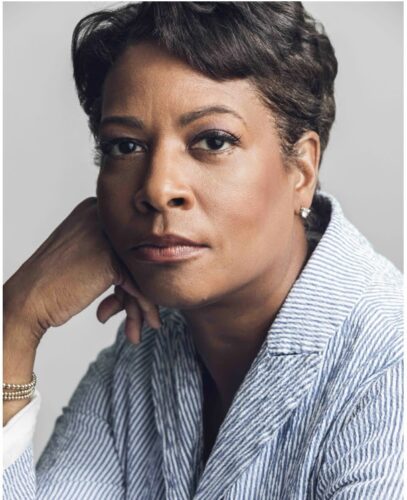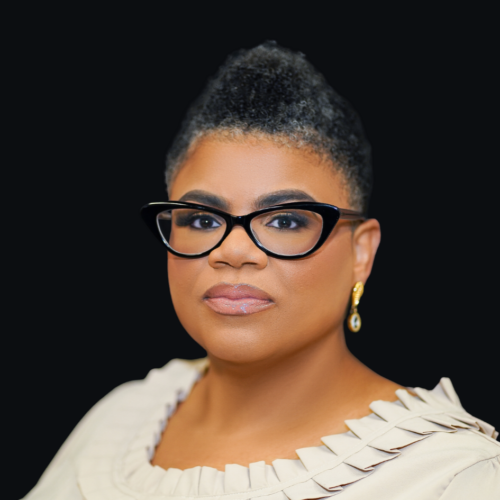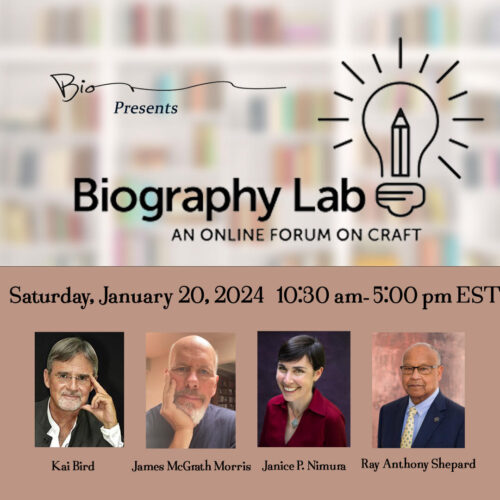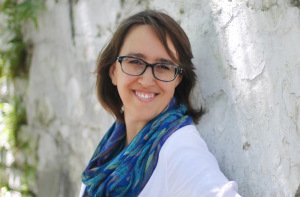April 7th, 2025

Photo: Kevin Scanlon
Dawn Porter has been awarded the 2025 BIO Award, an honor bestowed annually by the Biographers International Organization, to a distinguished colleague who has made significant contributions to the art and craft of biography.
Porter is an acclaimed American documentary filmmaker and founder of Trilogy Films, known for her storytelling on social justice, history, and cultural icons. Her celebrated documentaries, including Trapped, John Lewis: Good Trouble, and The Lady Bird Diaries, air on platforms such as HBO, Netflix, CNN, and PBS. Her recent work, Luther: Never Too Much, highlights the life and legacy of Luther Vandross. Produced with Sony Music Entertainment, Jamie Foxx’s Foxxhole, and Colin Firth’s Raindog Films, this intimate portrayal of the Grammy-winning artist was released in theaters and premiered on CNN/MAX on January 1, 2025.
Porter’s achievements are widely recognized. Trapped earned a Peabody Award and the Sundance Special Jury Prize for Social Impact Filmmaking, while John Lewis: Good Trouble won the 2021 NAACP Image Award. She received the Critics’ Choice Impact Award in 2022 and Gracie Awards in both 2022 and 2023. Recently, Porter was elected to the American Academy of Arts & Sciences, awarded the National Humanities Medal by former President Joe Biden, and received the IDA Career Achievement Award.
Porter’s 2024 MSNBC series, The Sing Sing Chronicles, offers unprecedented access to the Sing Sing Correctional Facility, providing a raw look at justice and redemption. Coincidentally, Porter’s Lady Bird documentary was based on a book by BIO member Julia Sweig, who also served as an executive producer for the film.
A former attorney, Porter holds degrees from Swarthmore College and Georgetown Law. Known for elevating marginalized voices and illuminating U.S. history’s lesser-known stories, she is a prominent figure in documentary filmmaking. She resides in New York City.
Of her award, Porter said, “It is truly an honor to receive this award. I feel extraordinarily lucky that my career affords me the opportunity to immerse myself in the stories of so many fascinating and influential people. Thank you BIO for recognizing documentary biography as a discipline!”
“Having Dawn Porter as this year’s BIO Award recipient widens our lens on biography beyond books to include insightful and illuminating documentaries about Congressman John Lewis, Vernon Jordan, Senator Robert F. Kennedy, Lady Bird Johnson, White House photographer Pete Souza, and Luther Vandross,” says awards committee member A’Lelia Bundles, author of Joy Goddess: A’Lelia Walker and the Harlem Renaissance. “Her films have brought these American stories to life for millions of viewers on several networks and streaming platforms including ESPN, HBO, PBS, CNN, and Netflix.”
The BIO Award recognizes a colleague who has made distinguished contributions to the art and craft of biography. Previous honorees are (in alphabetical order): Kai Bird, Taylor Branch, Robert Caro, Ron Chernow, Richard Holmes, Kitty Kelley, Hermione Lee, David Levering Lewis, Megan Marshall, Candice Millard, James McGrath Morris, Arnold Rampersad, Stacy Schiff, Jean Strouse, and Claire Tomalin.
Porter will deliver the keynote address at the 2025 BIO Conference on Friday, June 6th in Washington, DC.
 You can now register for Biography Lab 2026, BIO’s fourth annual online forum, which will take place via Zoom on Saturday, January 24, 2026. This event brings together biographers and publishing professionals for in-depth discussions on the craft and challenges of biography. It welcomes participants of all levels.
You can now register for Biography Lab 2026, BIO’s fourth annual online forum, which will take place via Zoom on Saturday, January 24, 2026. This event brings together biographers and publishing professionals for in-depth discussions on the craft and challenges of biography. It welcomes participants of all levels. 





